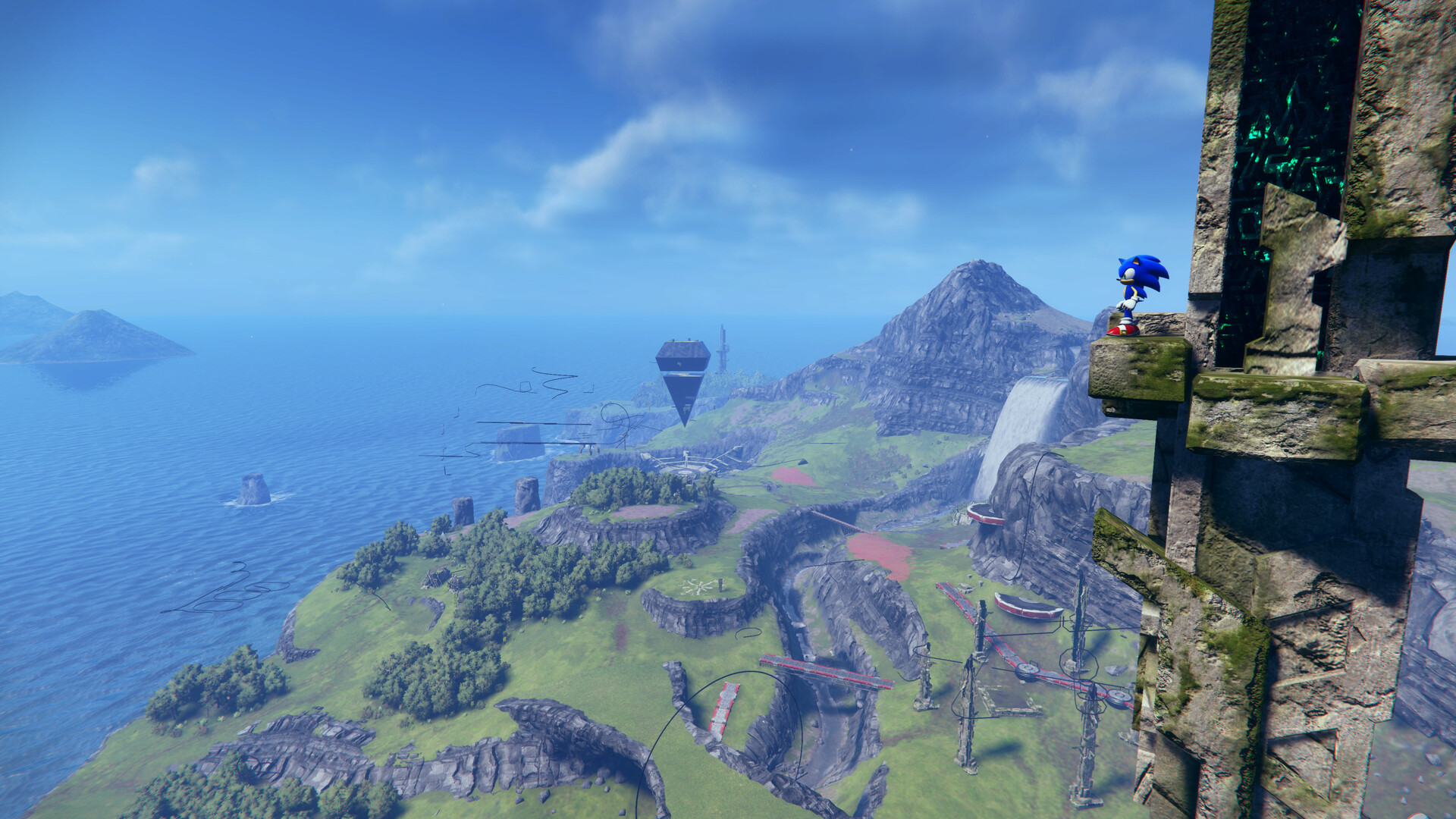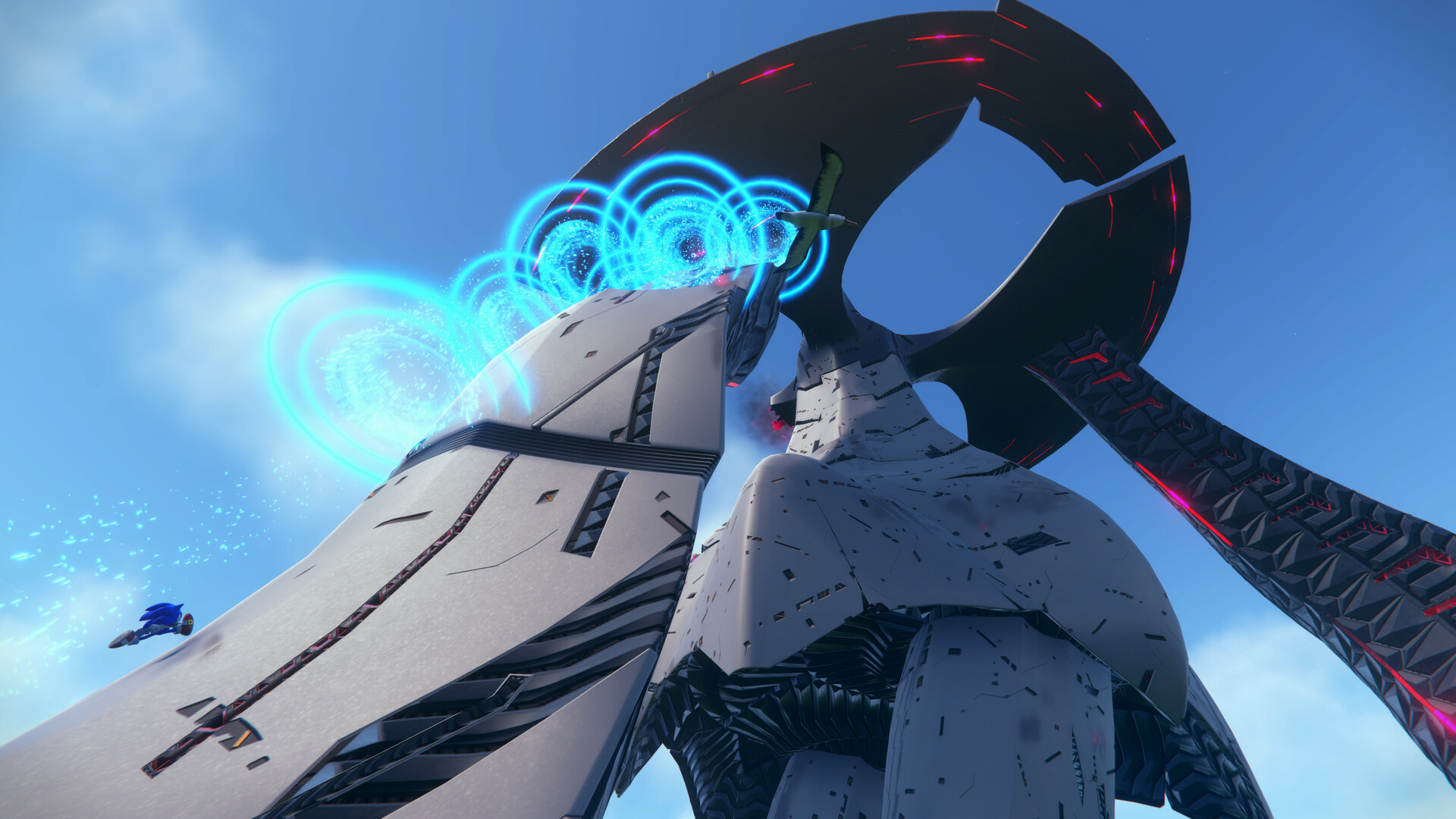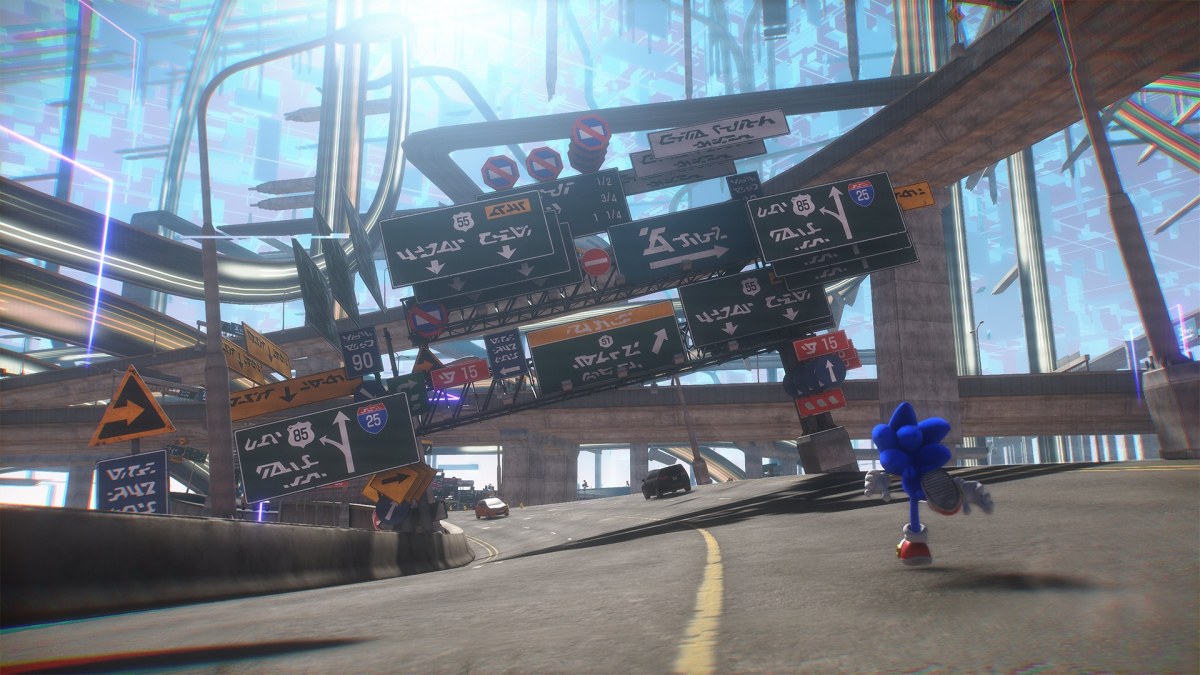I had a good feeling about Sonic Frontiers from the moment I saw its announcement trailer at last year’s Game Awards in December 2021. Something about the clear and obvious way that Sonic Team was pulling from The Legend of Zelda: Breath of the Wild — a game I consider to be the very best of the past decade — had me thinking / hoping / wishing that this was finally the game that would break the much-discussed “Sonic Cycle.”
My excitement only grew as the first gameplay footage and hands-on impressions trickled out over the summer. Despite mixed reception, I was drawn to what I was seeing. Not because of some new and innovative ideas that were being brought to the table, but because it felt like Sonic Frontiers was somehow pulling from countless inspirations that I just so happen to adore on an atomic level. And now, after spending over 15 hours in Sega’s new world, I am convinced that Sonic Team somehow discovered a list of games and other media that I love and created an installation piece that was genetically engineered for me (while also adding in a heap of pretty awful design decisions that are truly baffling).
First and foremost, yes, the Breath of the Wild comparisons are apt in Sonic Frontiers. The techno-fantasy vibes of Sonic’s islands recall the Sheikah Slate, the abundance of small Challenges feel like Shrines, you’re piecing together the story of a world that was torn apart by ancient weapons of war from centuries ago, and you level up by collecting cute little critters called Koco and returning them to their protector. It’s clear that the team was directly inspired by Nintendo’s 2017 masterpiece, but there’s also so much more at play here than that.
Sticking with Nintendo, the sheer abundance of micro challenges across the islands creates a dense playground of an open world that reminds me so much of the core gameplay flow of Super Mario Odyssey. There’s a constant sense of experimentation, reward, and progression in both games, especially when you first enter one of Sonic’s islands or Odyssey’s worlds.

Sure, there’s an overarching goal in both, but just pointing your character in a direction and running off to see what kind of trouble you can get into shares a similar flavor of fun. And both games are filled with completely unexpected moments, whether it’s Odyssey’s ode to Mario’s origins in the iconic “Jump Up, Super Star!” musical number, or the fact that Sonic Frontiers tasks you with building and firing an actual nuke in its second desert stage. Yes, that was a real thing that happens in Sonic, and I kind of love it.
But past the walls of Nintendo, Frontiers was clearly inspired by other iconic Japanese games from the past few decades. The roaming bosses and massive Guardians scattered across each of the islands immediately bring to mind Shadow of the Colossus. Observing them from a distance, studying their gargantuan attacks, and solving movement puzzles while climbing these almost organic ancient beasts all evoke the burgeoning Colossus-like subgenre, now populated by recent indies such as The Pathless and Solar Ash.
But while Shadow of the Colossus made me regret the things I was doing to these incredibly lonely creatures, Sonic Frontiers has a “oh hell yeah” flavor of anime adrenaline running through its veins. Whether it’s the monsters’ resemblance to the mecha and kaiju of Neon Genesis Evangelion, or each boss battle as Super Sonic being framed like a Dragon Ball Z fight, Frontiers channels the spirit of late-’90s anime in a way that just speaks to the version of me who used to spend hours each day after school parked in front of the TV and watching whatever Toonami had in store for me.

In addition to all of this, one thing I didn’t expect the game to channel was the lonely and contemplative landscape of 2019’s Death Stranding. Hideo Kojima and his team used the dreamlike landscapes of Iceland as inspiration for their take on a post-apocalyptic America, and when paired with the incredible music of Low Roar and Silent Poets, it helped create a surreal world for you to trek through. And I wouldn’t have believed it had I not experienced it myself, but Sonic’s opening zone, Kronos Island, channels that exact same frequency in its volcanic rocks, mossy cliffs, black-sand beaches, and surprisingly somber music. The fact that this melancholy vibe is juxtaposed with the bite-sized Cyber Space stages that hearken back to classic Sonic motifs, challenges, and music makes it even more remarkable.
I feel like I’m past the halfway point in the game, and I’m genuinely not sure what the rest has in store for me. Maybe I’ll find out more about the mysterious new character Sage, who is the spitting image of a young 2B from Nier Automata. Speaking of Nier, the way Sonic oscillates between 2D and 3D gameplay, plus its take on a hacking minigame via a bullet hell shooter, immediately brought Yoko Taro’s games to mind, and I have to feel like that was on purpose.
Sonic Frontiers is the strangest AAA game I’ve played in years. I’ve read reviews that run the gamut from 2/10 to 9/10, and I completely agree with both of those scores. Its kitchen-sink approach to design means that along with all of these influences that speak to the media I adore, there are also cumbersome menus, a glut of in-game currencies, a baffling fast-travel system, and visuals that can go from beautiful one second, to a technical mess the next. And while most of the Zelda influences really work for me, Sonic tries to do its own version of BotW’s Blood Moons in the form of Starfall Events, which are a complete mess that slaps a giant slot machine in the middle of your screen and pretty much stops you from making any meaningful progress in the game until it’s over. But honestly, all of this is part of what’s keeping me thinking about the game so damn much, so I consider it to be a net positive.






Published: Nov 16, 2022 02:00 pm